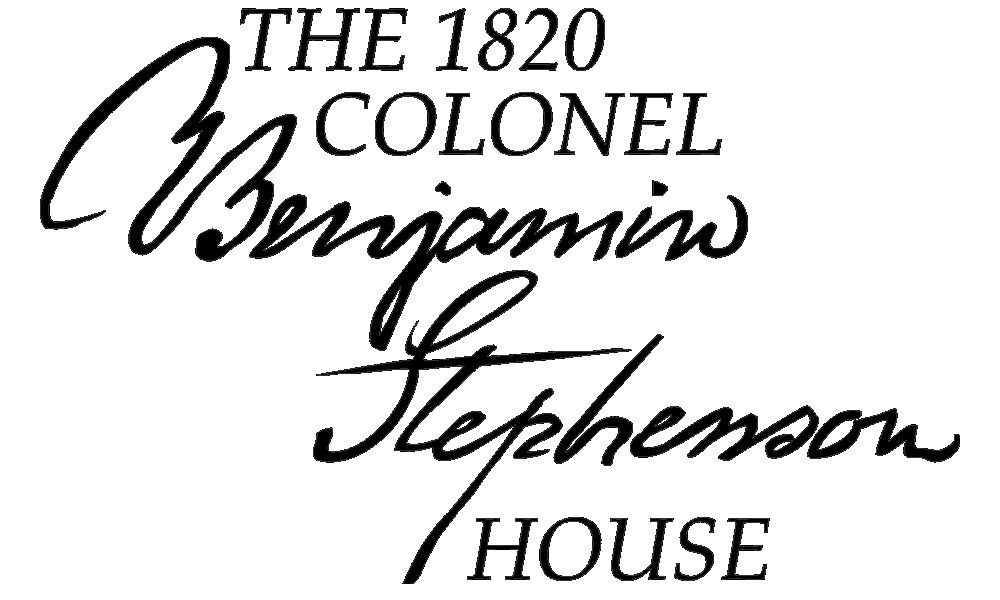 |
Congress
In October of 1814, Shadrack Bond, the territorial representative to the 13th U.S. Congress, resigned his position to become the Receiver of Public Money at the Federal Land Office in Kaskaskia. Governor Edwards appointed Benjamin Stephenson to complete Bond’s term. Stephenson had already been elected to succeed Bond in the 14th Congress that was scheduled to convene in 1815. Under normal circumstances, Stephenson would not have served in the 13th Congress because both sessions of the 13th Congress had already been adjourned. However, because of the War of 1812, a third session of the 13th Congress was called, and Stephenson took his seat in the U.S. House of Representatives on November 14, 1814. Stephenson arrived in Washington City only two and a half months after it was burned by the British. Since most of the public buildings had been burned, the congress met in a hotel.
Stephenson’s initial focus in the House of Representatives was the defense of the frontier. He and Rufus Easton, the territorial representative from Missouri, actively lobbied for more federal troops on the frontier. They wrote a joint letter to President Madison laying out the problems on the frontier and met with the president on several occasions. A second major concern was the issue of militia pay. Largely because of Stephenson’s work, the War Department finally provided pay for the Illinois militia. Stephenson actually collected the money from the War Department and personally brought the money back to Illinois.
By the time Stephenson’s elected term in the House began in 1815, the War of 1812 was over. With the removal of British influence among the Indians on the frontier, the threat of Indian attack was so reduced that Stephenson’s focus changed from the defense of the frontier to a number of social issues. Despite the fact that a territorial representative had no vote in Congress, and thus had little power, Stephenson compiled an impressive record of legislative success. Among his accomplishments was a legislative act, which gave the vote to all white males who had resided in the Illinois territory for a year. Under the provisions of the Northwest Ordinance that established the Northwest Territory, only Freeholders (those who owned at least 50 acres of land) were allowed to vote. Stephenson argued that most of those who had served in the militia during the war of 1812 were not land owners. Nevertheless, they had defended the territory as members of the militia, and, therefore, deserved the vote. The Congress changed the provisions of the Northwest Ordinance to allow voting by non Freeholders.
Stephenson was also instrumental in the establishment of the Circuit Court system. The original Northwest Ordinance established a three judge court for the territory. The judges in Illinois believed that they could meet wherever they wanted, and since they lived in Kaskaskia, they only met at Kaskaskia. A citizen living anywhere in the territory with court business had to travel to Kaskaskia and that might take many days. The Illinois Legislature and the governor wanted to change the system so that the judges would go to the people rather than the other way around. The judges argued that the Northwest Ordinance was a federal law and the territorial legislature and the governor could not pass any law which superseded the federal law. Stephenson convinced the U.S. Congress to pass an act that sided with the legislature and the governor rather than the three judges; thus, judges were required to hold court in each county in the territory. Finally, Stephenson shepherded through Congress a number of changes in the laws governing the sale of public land. He also clarified the boundaries of the territory. For example, the line between Illinois and Missouri was declared to be the middle of the Mississippi River and that islands in the river would be allocated to either territory by their location with regard to this line.
In a long letter to the editor of the Western Intelligencer in the June 19th, 1816, edition of the paper, Stephenson laid out his legislative successes and announced that he would not seek re-election. In the introduction to Stephenson’s letter, Daniel Cook commented on Stephenson’s success in Congress. Cook said, “He made no parade of extravagant promises, but he has shown emphatically his faith by his works.” In other words, Stephenson was a politician who promised little but produced much. In that respect, he was as unusual in 1816 as he would be today.
|
 |



